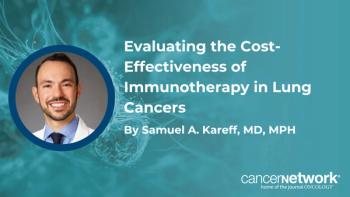
WHO Report-Outdoor Air Pollution Causes Cancer
The International Agency for Research on Cancer (IARC) announced via press release the designation of outdoor air pollution as a Group I carcinogen, stating that it causes lung cancer.
It has been known for decades that air pollution in heavily industrialized areas contributes to or causes many health problems. Exposure to air pollution is associated with respiratory and heart disease.
[[{"type":"media","view_mode":"media_crop","fid":"20067","attributes":{"alt":"A new WHO report found that there is sufficient evidence that outdoor air pollution causes lung cancer","class":"media-image media-image-right","id":"media_crop_8447860166833","media_crop_h":"0","media_crop_image_style":"-1","media_crop_instance":"1238","media_crop_rotate":"0","media_crop_scale_h":"0","media_crop_scale_w":"0","media_crop_w":"0","media_crop_x":"0","media_crop_y":"0","style":"float: right;","title":"A new WHO report found that there is sufficient evidence that outdoor air pollution causes lung cancer","typeof":"foaf:Image"}}]]Cancer has long been suspected to be among these health problems associated with increasing levels of air pollution, but it had yet failed to reach carcinogenic status.
The IARC Monographs program brought together experts from around the world in order to review the latest literature available on air pollution in relation to cancer. These articles included epidemiological studies of different populations living in industrialized areas around the world.
After reviewing more than 1,000 articles from labs around the world, this group came to the conclusion that there was sufficient evidence that outdoor air pollution causes lung cancer, and to label it as a carcinogen.
This conclusion is the strongest that the IARC can reach, and substances with sufficient evidence for carcinogenicity are denoted Group I carcinogens.
“This is the highest classification group, meaning we know that it’s causing cancer in humans,” said Kurt Straif, MD, MPH, PhD, head of the IARC Monographs section.
In the
Newsletter
Stay up to date on recent advances in the multidisciplinary approach to cancer.
Related Content




Evaluating the Cost-Effectiveness of Immunotherapy in Lung Cancers











































